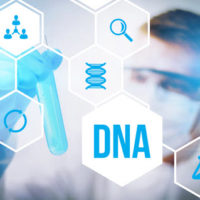New York City’s DNA Database for Criminal Suspects: Is It Unconstitutional?

New York City’s collection of genetic data in a DNA database has long been controversial, especially as more and more police departments – including the New York City Police Department- increasingly rely on them. Just over the last two years, the database has grown by close to 30 percent to include more than 80,000 people. What is especially disturbing about it is the fact that individuals including juveniles who have not been convicted of crimes are included in that database and officers have been known to collect DNA off of items – such as cigarettes and drinks – that they offer to suspects without individuals knowing or providing permission for their DNA to be collected and stored forever.
City Versus State-Based Databases
The database has been in the spotlight of late due to a murder case here in New York that allegedly involved police taking DNA samples for more than 350 black men in Brooklyn and Queens in order to find a suspect. According to allegations, law-enforcement pressured and threatened a number of people into handing over their DNA samples. This is because, under law, while state-based databases can only get DNA from people who have already been convicted of a crime, local databases – such as those assembled and maintained for New York City – are not subject to the same laws; which means that, if your DNA has been collected and placed in a city database, you have to sue to try and get it removed.
Without Regulation & Oversight, There Is Too Much Potential for Abuse
Law enforcement databases that operate without any regulation or oversight and collect information about citizens without protocols as to how that information is used is unconstitutional. Without establishing protocols that limit whose DNA is collected and entered, how long that information is kept, whether it is destroyed or shared, who has access to the database, and under what circumstances there is a violation, there is encroachment by government law-enforcement without judicial oversight. In addition, the police are essentially arbitrarily choosing who will be in the database and using both deception and coercion to do so. As a result, racial profiling – i.e. including rounding up the “usual suspects — is a serious issue, especially since there are no rules as to what type profiles are maintained and what police can do with them, including prerogatives such as potential non-criminal purposes.
Contact Our NYC Criminal Defense Attorneys
City police should not be able to collect DNA until laws are passed and they have a warrant. In addition, the New York Police Department database should specifically be subject to legislative oversight, protocols and guidelines as to whose DNA can be entered and what governs its use.
If you or a loved one has been accused of a crime here in New York City, it is imperative that you speak with an experienced criminal defense attorney right away in order to ensure that your rights are protected. Contact our NYC criminal attorneys at the office of Mark I. Cohen, Esq. today to find out about our criminal defense services.
Resource:
cityandstateny.com/articles/politics/ask-experts/should-the-nypd-be-able-to-use-the-citys-dna-database.html/
